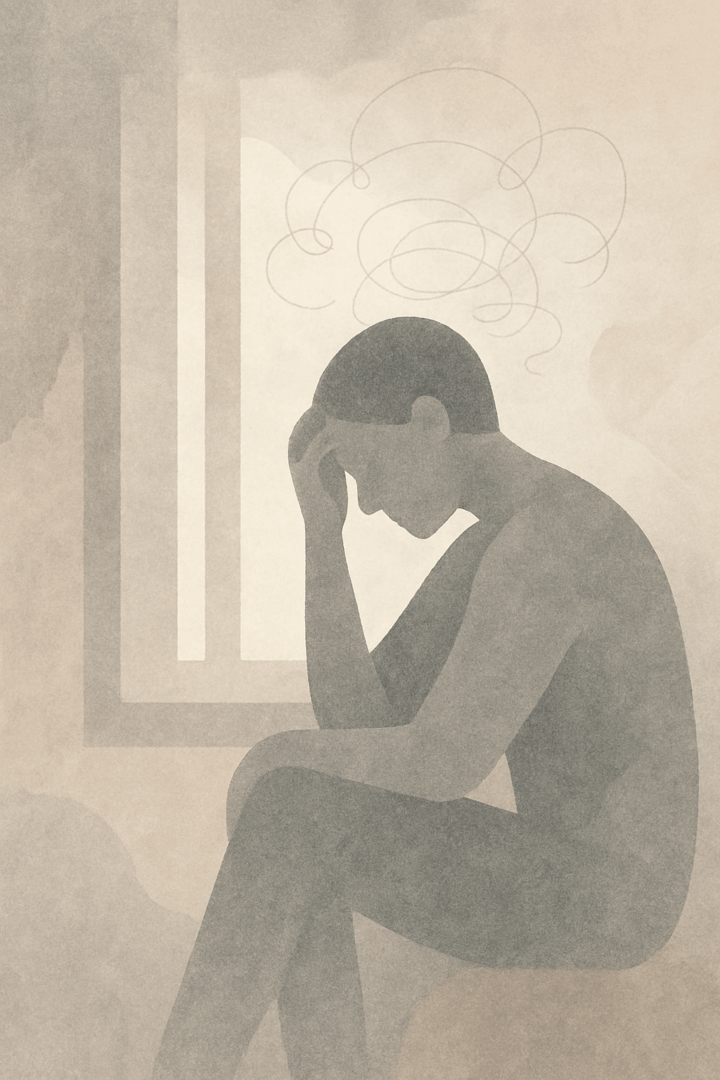Mental Health Crisis
How to Get Help in a Crisis and Support for Your Mental Health

Experiencing a mental health crisis can feel overwhelming, isolating, and frightening, especially when earlier interventions have not helped. At Khiron Clinics, we recognise the urgency of these moments and the importance of fast, compassionate care. Whether you are seeking help for yourself or supporting someone in distress, this page provides practical guidance, including how to get help during a crisis, what services are available, and how to access specialist trauma support for long-term recovery.

If you have a client or a relative who needs a type of care that is supportive enough to enable them to become who they really are, Khiron Clinics is the place to go.”
Dr Stephen Porges
When Does a Mental Health Crisis Become an Emergency?
A mental health crisis becomes an emergency when someone’s safety, or the safety of others, is at immediate risk. This could involve thoughts of suicide, self-harm, extreme confusion, loss of connection with reality, or uncontrollable emotional distress. Rapid escalation is common, and recognising warning signs early is vital.
If someone expresses a desire to harm themselves or others, or shows signs of acute psychosis, such as hearing voices or extreme paranoia, urgent help is needed. In these cases, contacting emergency services or going to the nearest hospital is the recommended step.
At Khiron Clinics, our clinicians often support people who have experienced acute mental health challenges and have been in emergency care systems. Khiron Clinics, works closely with families and referring professionals to guide safe decision-making—we provide trauma-informed support, ensuring that urgent needs are met with empathy, clarity, and appropriate action. When a mental health emergency occurs, the goal is always safety first, followed by trauma-aware assessment and care that honours the nervous system, builds trust, and gently lays the groundwork for long-term healing.


What To Do During a Health Crisis
- Calling a freephone crisis line for immediate advice
- Contacting a mental health crisis team in your area
- Speaking to NHS 111 or visiting the nearest emergency department
How to Make a Crisis Call
Taking the first step during a mental health crisis can be difficult. Making a crisis call may feel daunting, especially if past support systems have not met your needs. Still, it is often one of the fastest ways to access urgent help.
If you are unsure where to begin, try the following:
- Call 999 if there is immediate danger
- Use NHS 111 for urgent but non-life-threatening advice
- Contact a dedicated mental health helpline such as Samaritans (116 123) or Mind
When making a crisis call:
- Speak clearly and calmly
- Provide detailed information about symptoms and risks
- Share any relevant history or known triggers
- Mention if the person has had previous contact with mental health services
Clinicians rely on accurate information to offer the most appropriate response. If you struggle with verbal communication, many helplines now offer text-based services.
At Khiron Clinics, we train our teams to listen without judgement. Whether you are reaching out for yourself or someone else, know that help is available and that it is okay to ask for it.


The Role of Crisis Teams in Immediate Mental Health Support
Crisis teams provide fast, community-based support for individuals experiencing acute mental health episodes. These teams, often called crisis resolution or home treatment teams, respond quickly to reduce risk and stabilise the situation without the need for hospital admission, where possible.
Once contacted, a crisis team conducts an assessment to understand the individual’s condition, risks, and history. This often takes place in the person’s home, a clinic, or another safe location. The team includes mental health professionals who work together with the individual, their family, and other services to develop a care plan.
Key support might include:
- Medication review or prescription
- Immediate psychological support
- Planning for aftercare services or trauma-focused therapy
- Referrals to longer-term services, such as Khiron Clinics
Crisis teams act as a bridge between emergency response and longer-term recovery. For those who have felt overlooked or misunderstood in past services, these teams offer a more personal, direct route to care.
Supporting Clients After Crisis Resolution Services at Khiron Clinics
Crisis Resolution Services aim to break the cycle of emergencies—but true healing begins post-crisis. At Khiron Clinics, we guide clients toward deeper recovery by nurturing the roots of trauma, not just extinguishing symptoms. Our team, trained by experts like van der Kolk, Fisher, Porges, and Schwartz, delivers nervous-system-informed care tailored to each person’s needs.
We offer an integrative, multidisciplinary pathway from crisis teams and GPs to our clinic, fitting those with complex trauma, PTSD, dissociation, anxiety, depression, or personality-related distress. We provide therapies such as EMDR, IFS, Somatic Experiencing, Sensorimotor Psychotherapy, Trauma-Informed Stabilization Treatment, and the Safe and Sound Protocol—all delivered within a trauma-aware, somatic framework .
Our mission is to shift from asking “What’s wrong with you?” to “What happened to you?”—working with the nervous system to build safety, regulation, and lasting connection. We’re here to guide clients and their supporters toward real, embodied recovery.
Expand Life Skills
Increase Safety in Relationships
Express Unprocessed Emotions
Identify & Manage Triggers
Develop Resources
Understand Science of Trauma

Supporting a Loved One Through a Mental Health Emergency
Family, friends, and carers play a vital role during a mental health crisis. When someone you care about is in distress, your presence, calm, and attunement can make a meaningful difference.
Here’s what you can do:
- Stay steady and grounded
- Listen without judgment or urgency
- Offer reassurance—they are not alone
- Encourage seeking or accepting help
- Call emergency services or a crisis line if there is an immediate risk
Where possible, plan ahead. Keep key contact details, medical history, and safety plans accessible and shared among those involved.
Supporting someone in crisis can be emotionally taxing. It’s important to tend to your own well-being, too. Peer groups, community services, and trusted resources can help you stay resourced, regulated, and clear in your role.
At Khiron Clinics, we understand that trauma recovery is relational. Healing happens not only within individuals but also between them. That’s why we offer support, education, and trauma-informed guidance for carers as part of our commitment to whole-system healing.
If you or someone close to you is in crisis, don’t wait to reach out. Our clinicians are here to provide safe, attuned, and specialist trauma support—from crisis navigation to long-term recovery planning.

Download the Brochure
Discover Our Innovative Trauma Recovery Pathway
Next Steps
We Are Here to Help You Find the Path to Effective, Long Lasting Recovery.

Talk to Us
Get in touch with us and share your story if you feel comfortable with someone who will listen. Our team are always here to help.

Book an Initial Consultation
Meet with a senior member of our clinical team and get insights into the root causes of your issues, plus a written summary and treatment recommendation.

Download Our Brochure
Discover our innovative trauma recovery pathway. Find out more about how we treat, what we treat, our clinics, pricing and more.
